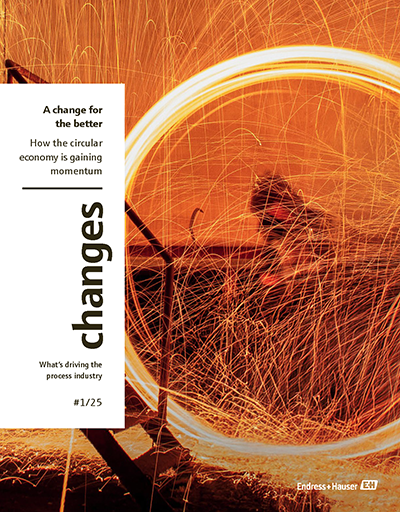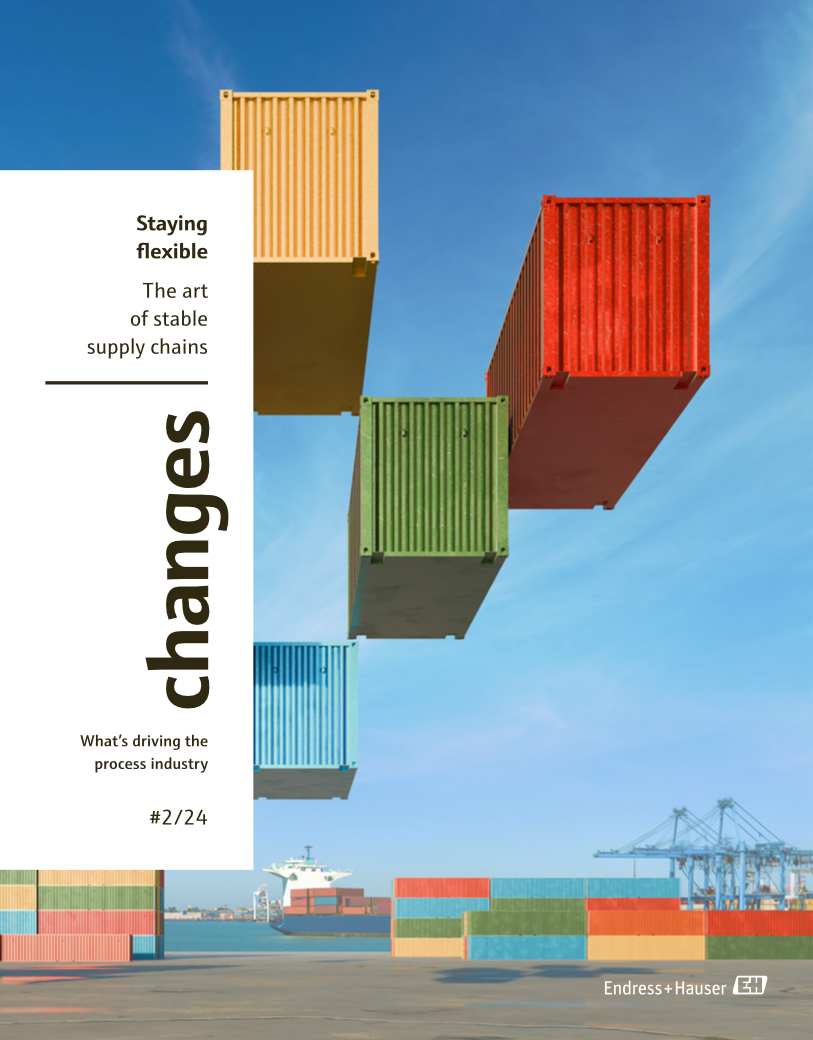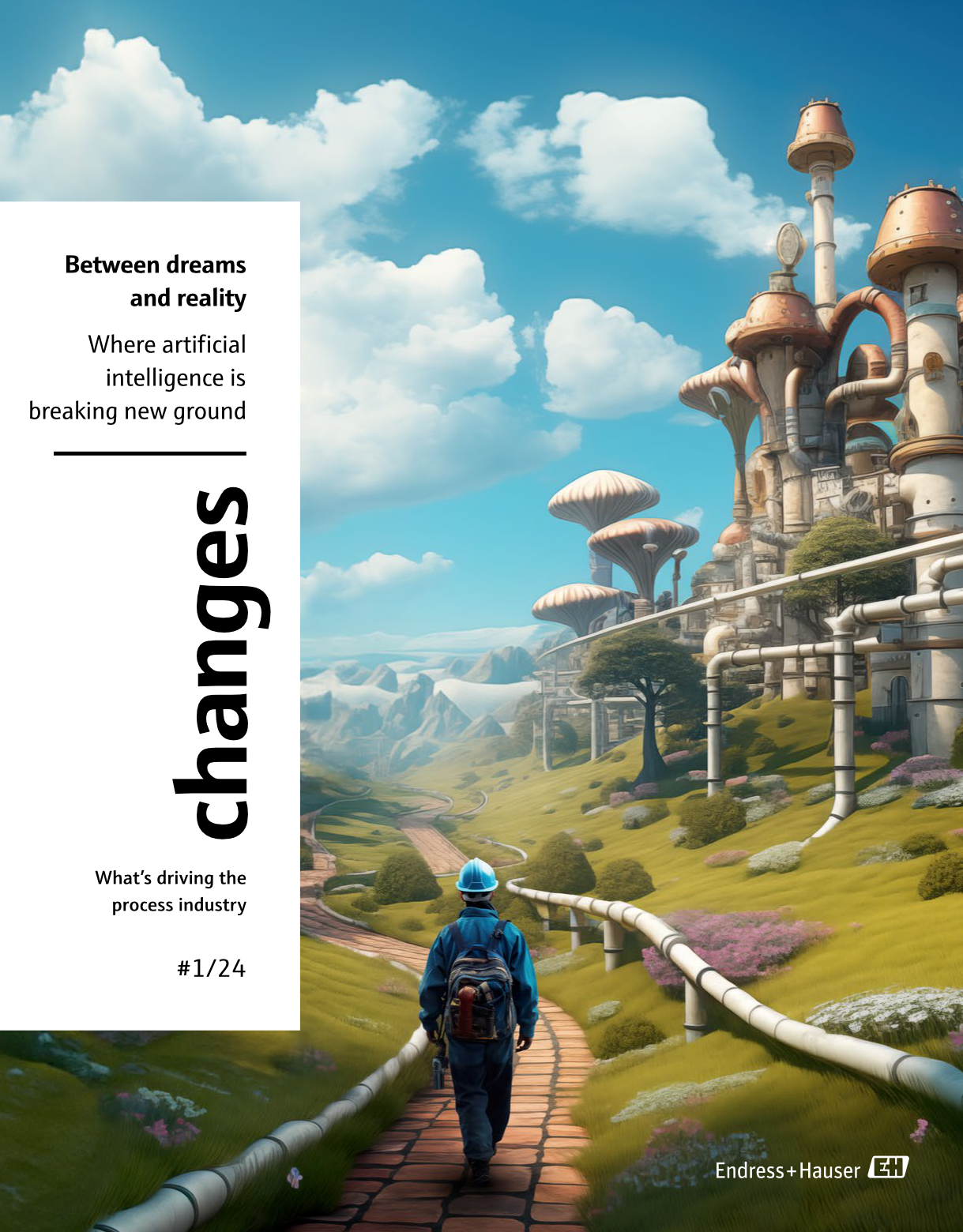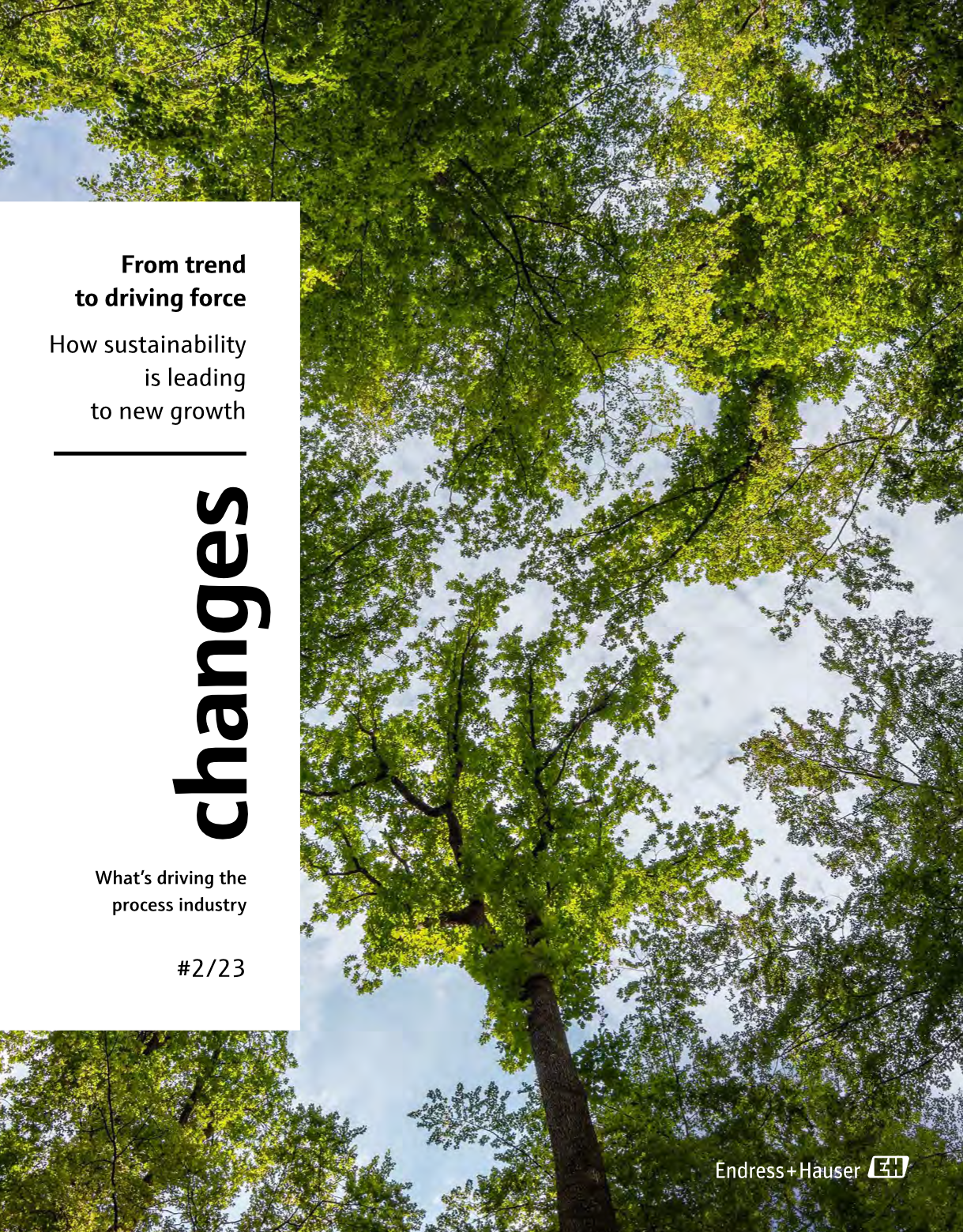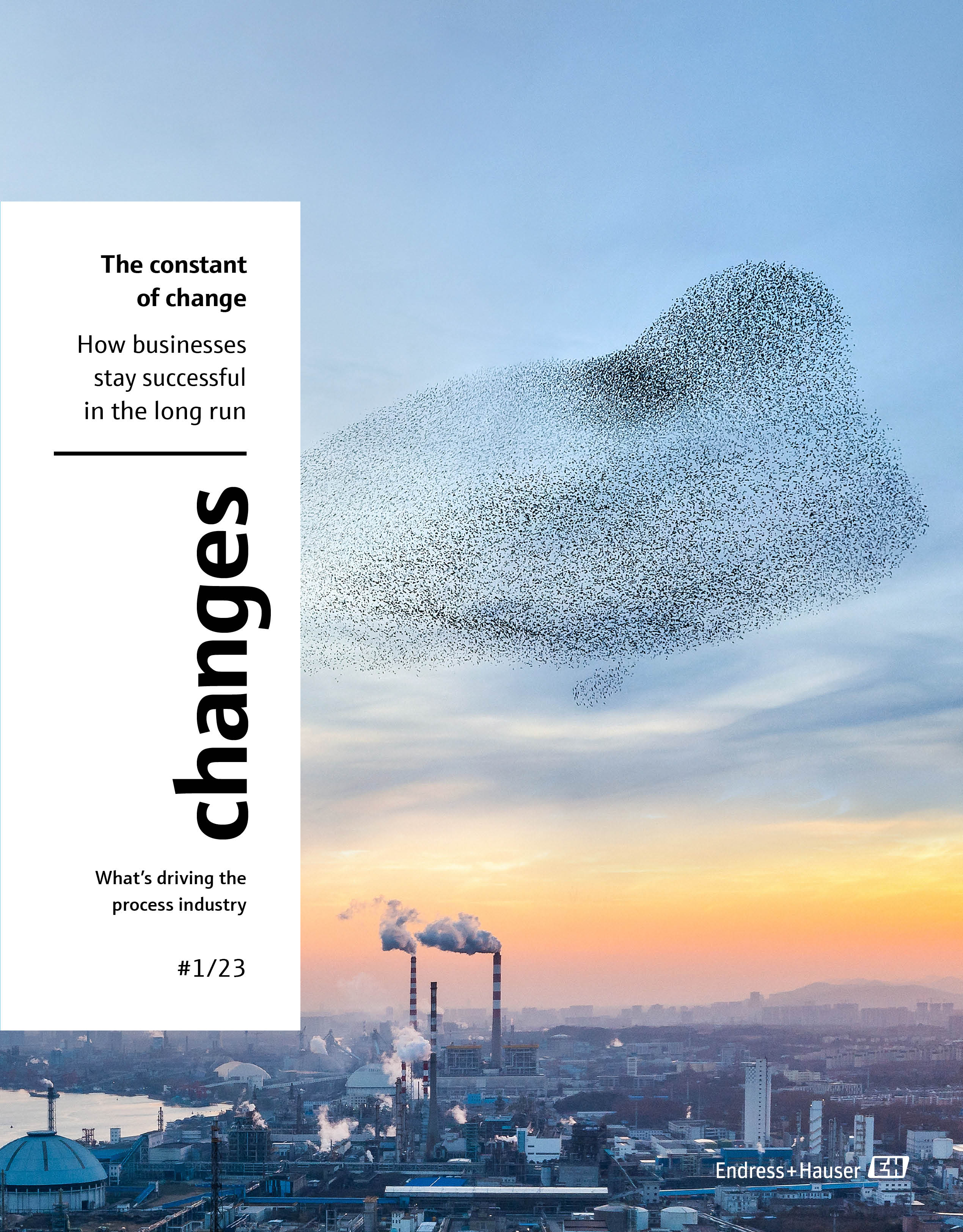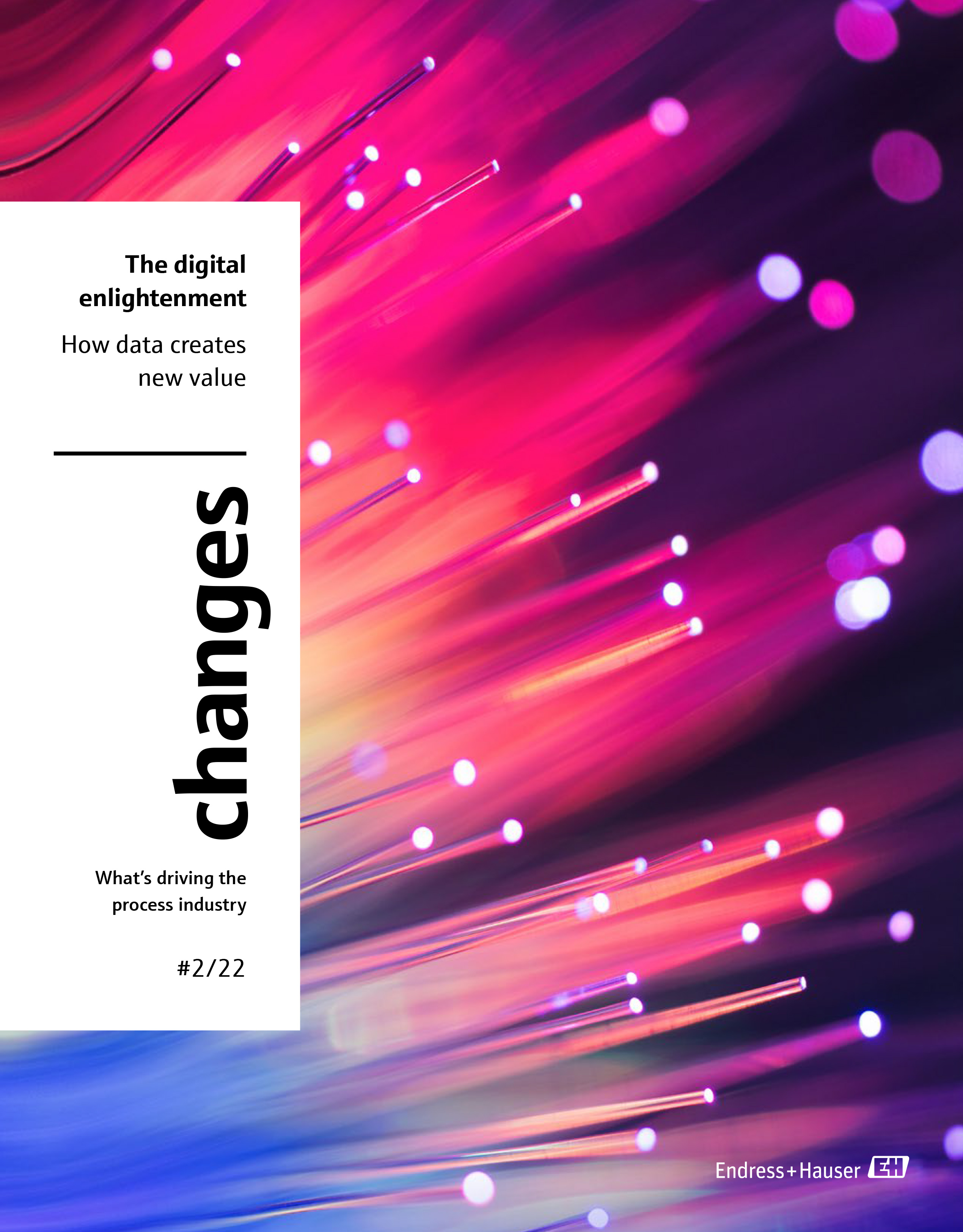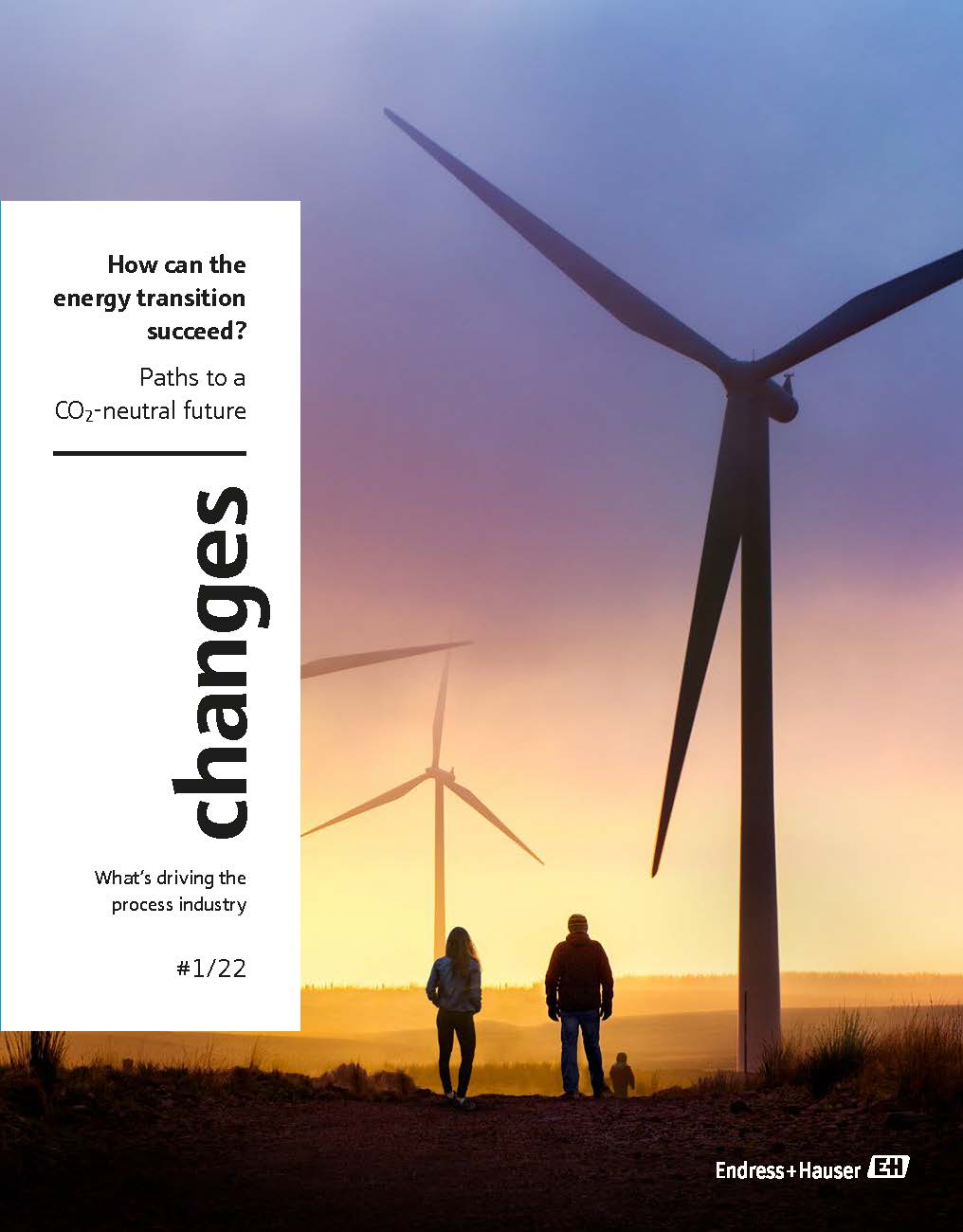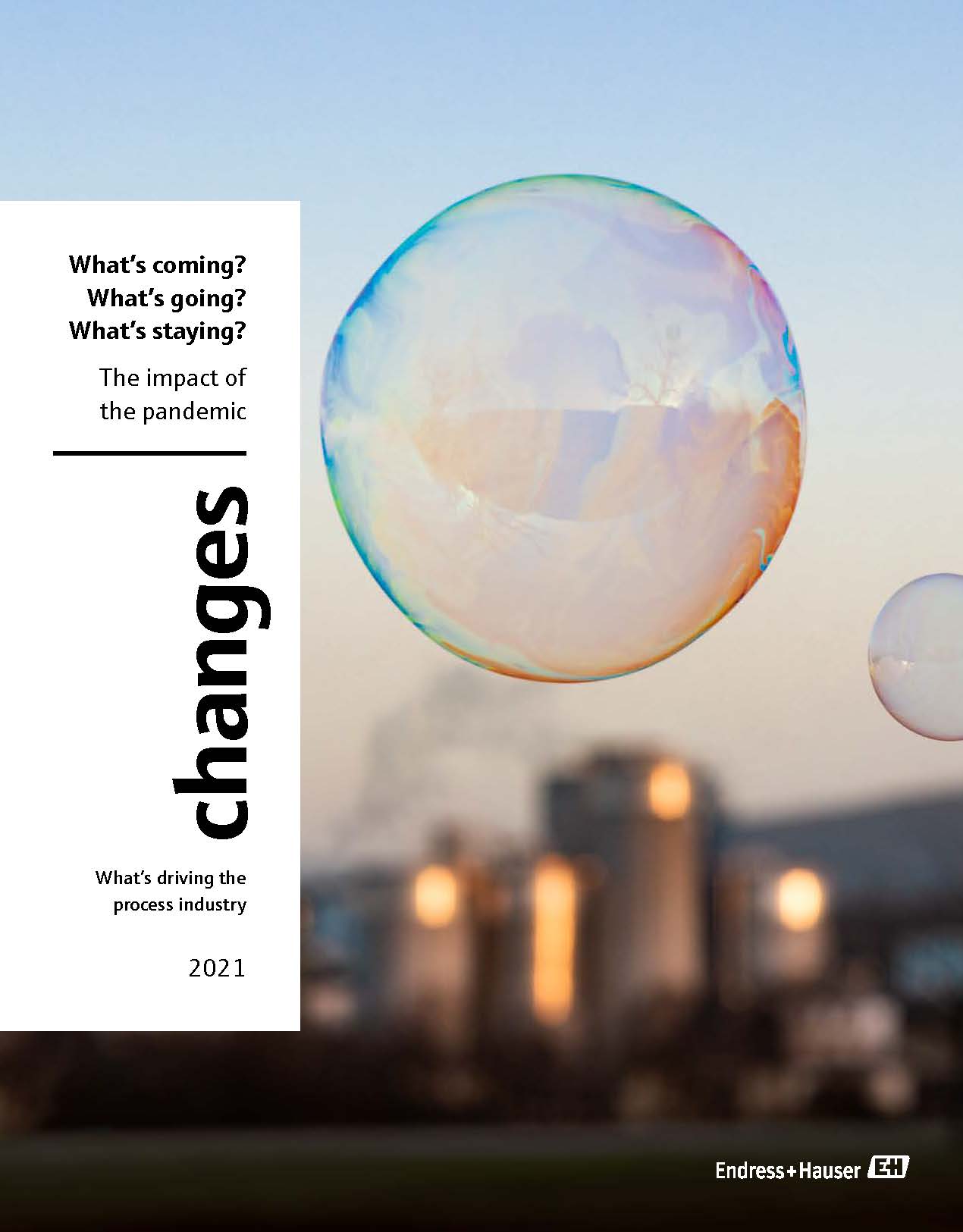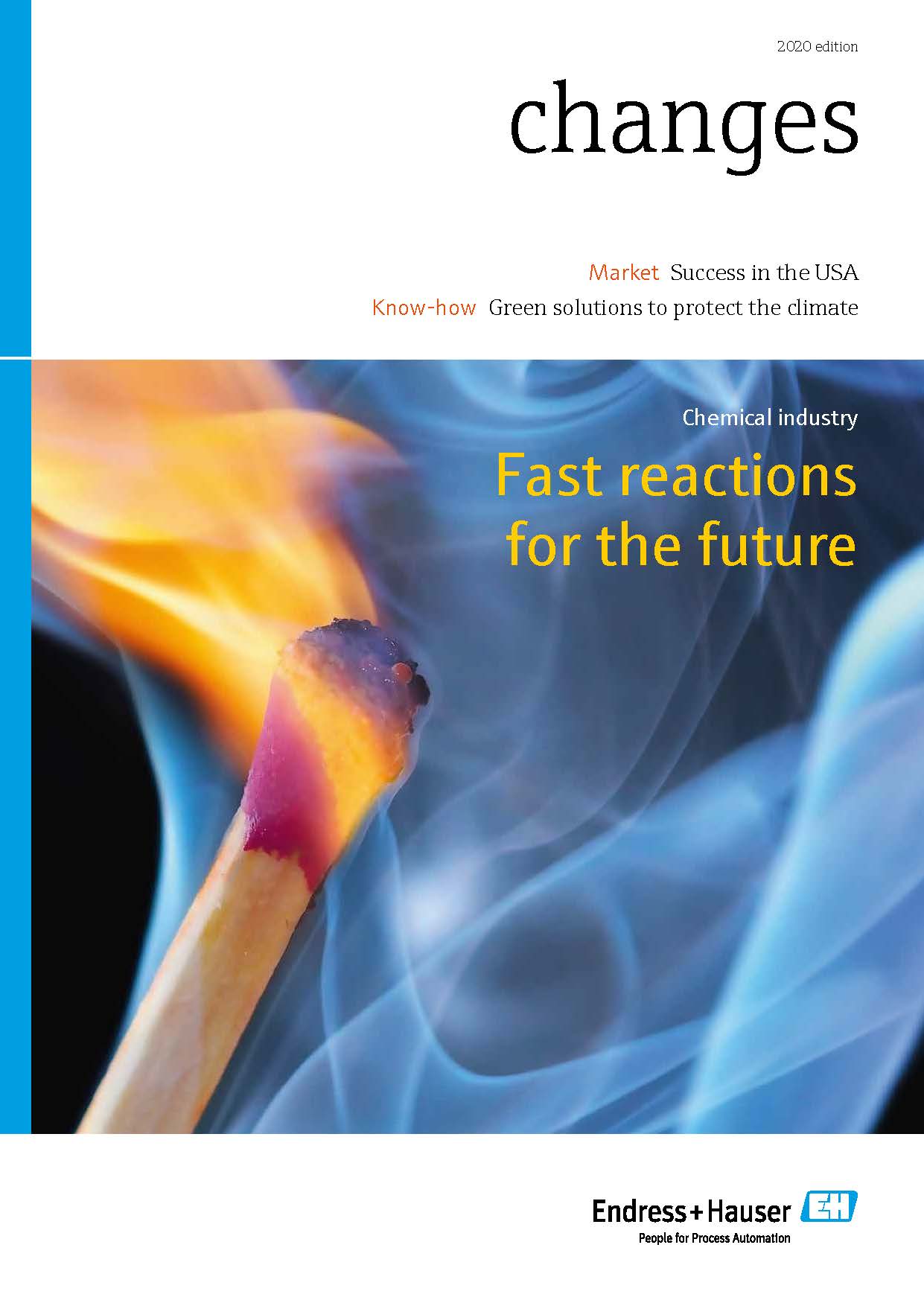“Standards bring down barriers and costs”
Data helps industry to optimize production – and is essential for the transition to a sustainable energy supply. But more standardization is needed, say Frank Stührenberg, CEO of Phoenix Contact, and Endress+Hauser CEO Matthias Altendorf.
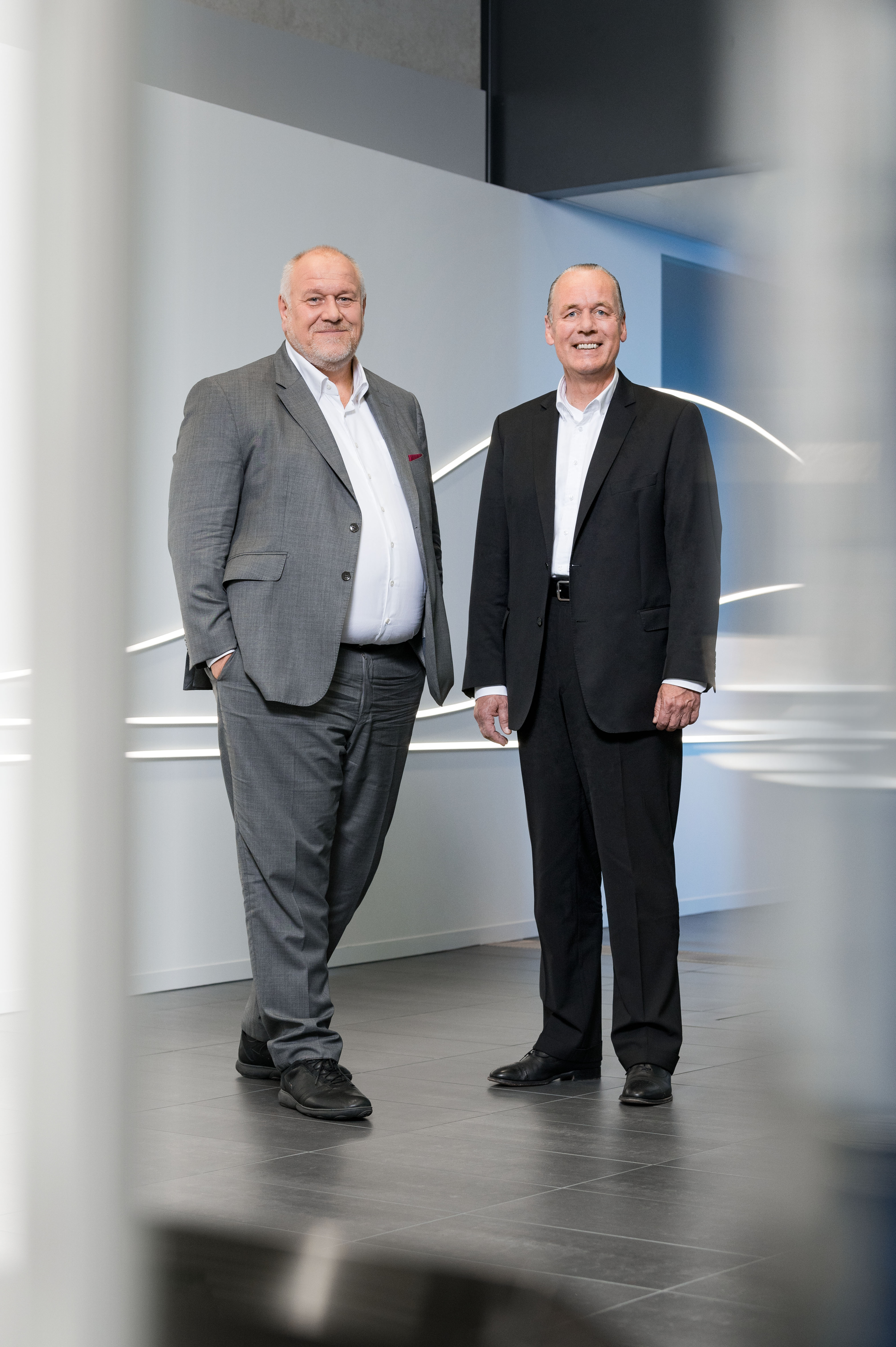
Mr Stührenberg, Phoenix Contact recorded strong growth in 2021 and is expected to repeat this performance in 2022. How are you achieving that in times like these?
Stührenberg: Truly, I don’t think we’ve ever had growth exceeding 20 percent for two years in a row. Under the current circumstances, that’s indeed remarkable. My general view is that we’re seeing a substantial growth phase in both electrical and process engineering, which will continue for a long time to come.
Why is that?
Stührenberg: A number of developments are now converging and synergizing. One of them is decarbonization and the related electrification of the economy and society. To build a fossil-free world, we need accurate data on energy consumption. We must also get transport, energy, buildings and industry all hooked up together. Another development is the labor shortage brought on by changing demographics. More automation will help us respond to the scarcity of skilled workers. A third trend is the move toward greater resilience. That requires redundancy in the form of new factories, outside of China for example. And we supply them with technology.
Mr Altendorf, Endress+Hauser has also posted considerable growth recently. Have digitalization and connectivity played a role in this?
Altendorf: We have been digitalizing our business for two decades now, and by that we mean joining up various data sources in the process engineering industry. Our sensors generate data that we make available and enrich with supplementary information so that rules-based decisions can be taken using this knowledge. What’s new here is the ability to offer this knowledge network-wide to all who can benefit from it. So the more players and data content there are in the network, the more value there is to be gained.
How did this new situation come about?
Altendorf: One reason is the rising number of mobile devices. Another one is cloud connectivity. The old clientserver architectures were not particularly suited to that. Cloud services make it easy for us to provide the data. Data volumes are increasing as a result, while we are seeing the rise of algorithms that process, slice and dice the data to make it usable. Which leads me to the third reason: the dramatically decreasing cost of computing power and bandwidth in recent years. All of this is driving digitalization. Our project volume in this field rose by one third in the first half of 2022.
„An individualistic society is poor at coping with crises – we can only overcome them through concerted action. And that’s precisely the strength of family businesses: their power to bond people together.“
Matthias Altendorf
CEO Endress+Hauser
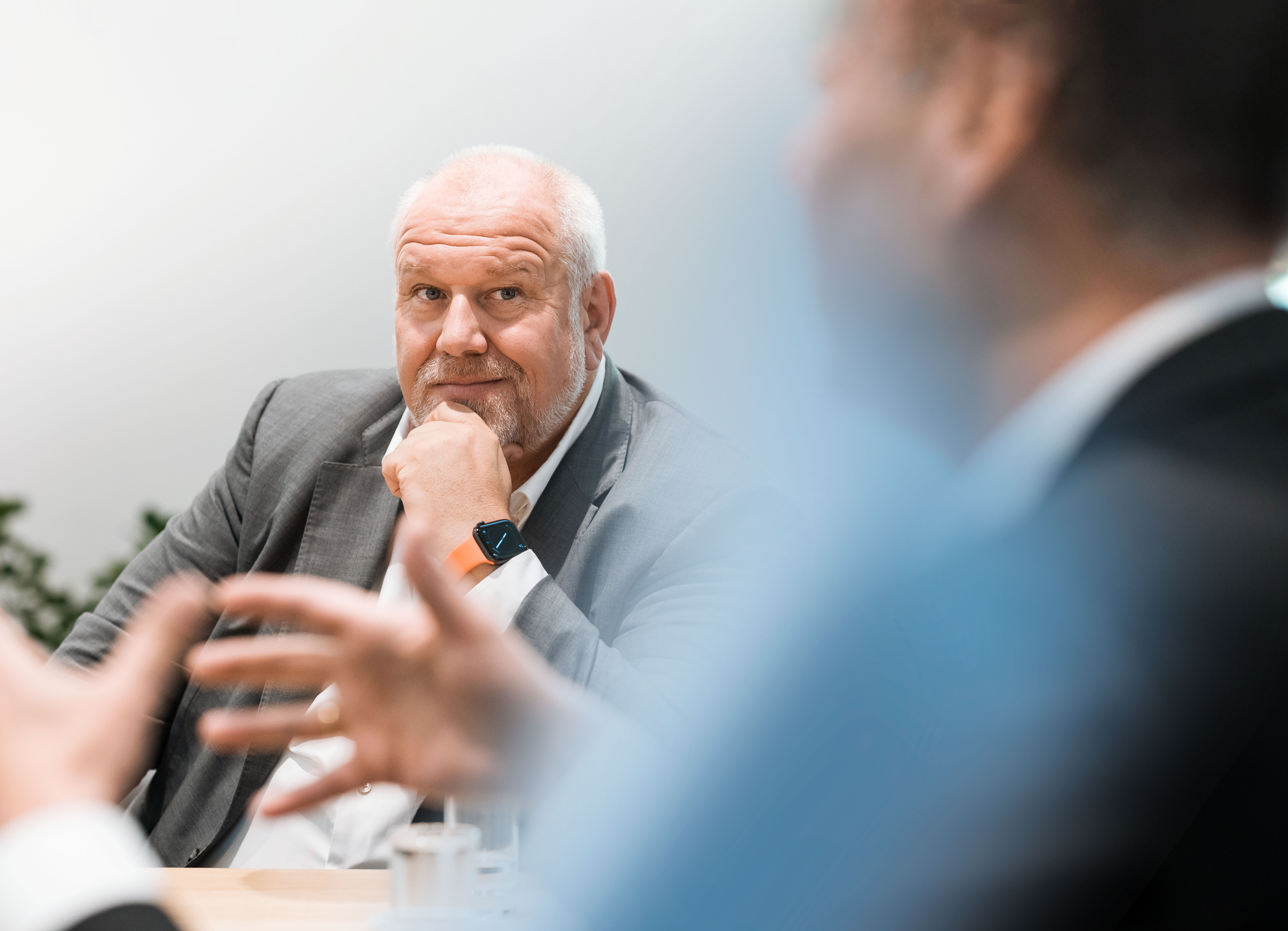
What opportunities does this create for your customers?
Altendorf: We supply them with almost three million sensors a year. Ten percent already have digital twins. These enable our customers to plan more effectively and to operate their plants with greater resilience. There are fewer unexpected outages. And our customers can operate more equipment using fewer staff, increasing their productivity.
Mr Stührenberg, let’s take a look at your customers and your product range. How has this developed in digitalization terms?
Stührenberg: Our portfolio development has always been very organic. Phoenix Contact has its roots in electrical interconnections. Starting from quite basic connector components, we added the first electronic functions such as relay switching and LED circuitry. This evolutionary path took us forward to automation, which we continue developing today as one of our core activities. The complete transformation of energy supply infrastructure will play a crucial role for us through this decade, and likely into the next.
What exactly do you mean by that?
Stührenberg: It’s about more than replacing coal-fired power stations with wind farms. We also need to electrify, digitalize, automate and interconnect every sector of industry. This will be the guiding principle of activity at Phoenix Contact. Which will in turn continue driving our transformation as a company. Key factors here are digital interconnectivity and data exchange, for example in electric vehicle charging or in vehicle-to-grid storage solutions where the car and charging system communicate with the power grid.
Altendorf: The electrification that Mr Stührenberg describes is driving decarbonization across industry. Paired with this is the hydrogen economy, because we also need to store the electricity from renewable sources. That can’t be done with batteries or pumped storage hydropower alone. Hydrogen is a medium that we can use to readily convert stored energy back into electricity. We can also use hydrogen as a feedstock for producing plastics, fertilizers and other crucial products.
Stührenberg: Storing electricity in the form of hydrogen has efficiency drawbacks, but we can overcome these if we produce a plentiful supply of renewable energy. We are currently seeing some promising approaches in the Middle East that use infrastructures and technologies already in place for oil and gas.
The game-changer in globalization was the standardized shipping container. This drastically reduced the effort involved in movement of goods; we need to reach a similar place with data exchange as well.“
Frank Stührenberg
CEO of Phoenix Contact
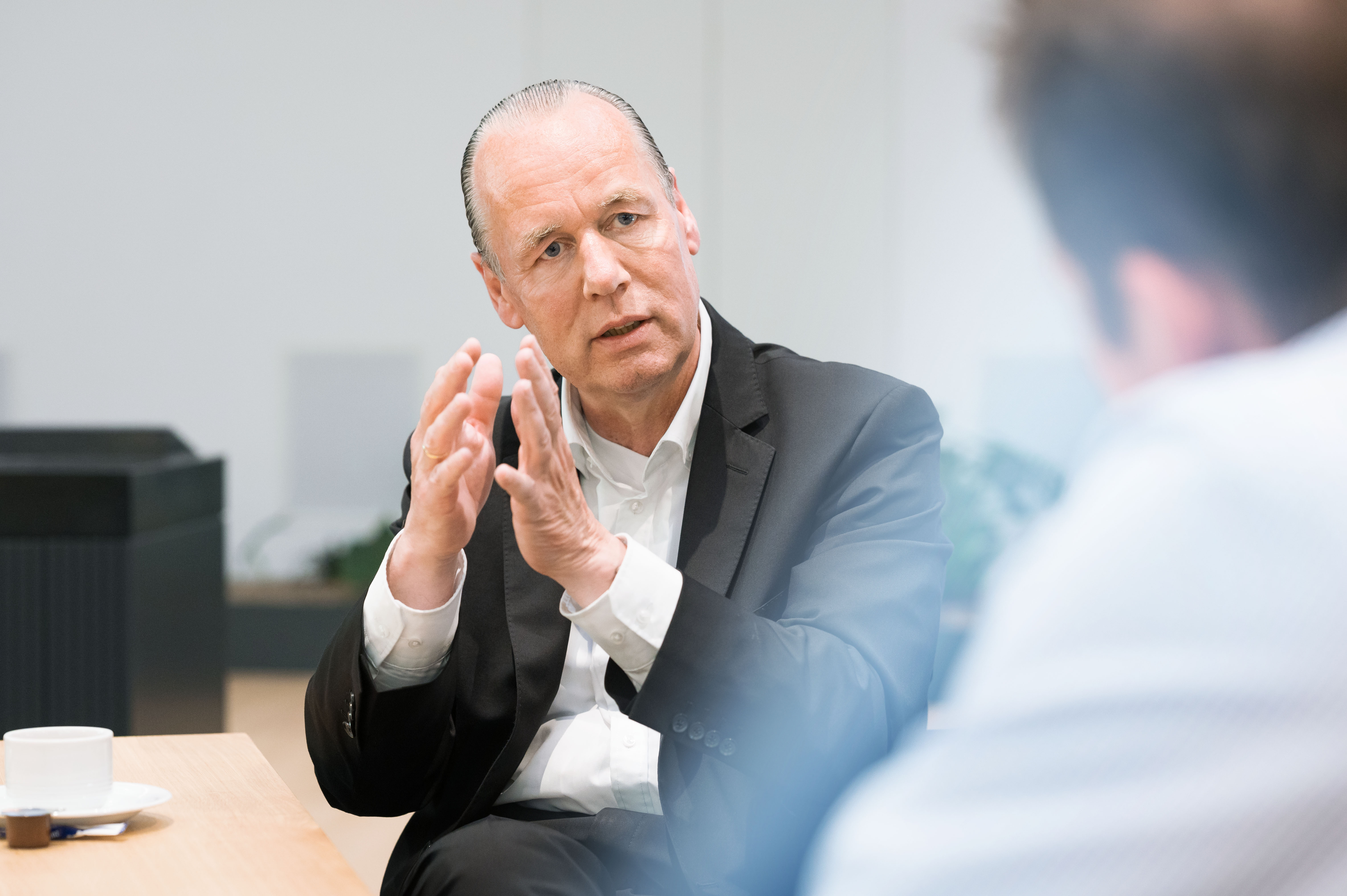
What is your experience to date with digital factory solutions in your own manufacturing?
Stührenberg: In our pilot plant – an electronics factory – we have seen that digitalizing to the max does not automatically improve production. Rather, that comes down to making production processes as lean and efficient as possible. For which you need real-time process data. This is the only way to find out whether altering a process step will bring the hoped-for success. But collecting this data is of no use by itself. That’s why another one of our major focuses is data analytics, so that we can spot when a process is going in the wrong direction.
What do plant operators expect from Endress+Hauser when it comes to digitalization?
Altendorf: There are three main factors. First comes safety: people, machinery and the environment are at risk if the measurement technology in process systems does not work reliably. So it must be functionally safe and well protected against cyberattacks. Second is the domain knowledge required for linking up IT and OT – information and operating technology. This is particularly important to operation and maintenance. If a replacement for a process-critical instrument would not be immediately available, we must let the plant operators know of a possible problem in good time. The digital twin makes this possible. The third factor is intercommunication among components, in other words their interoperability. Instruments must speak a common language.
Stührenberg: The game-changer in globalization was the standardized shipping container: eight feet wide, eightand-a-half feet tall, 20 or 40 feet long. This drastically reduced the effort involved in movement of goods; we need to reach a similar place with data exchange as well.
Altendorf: This is where industry associations, partnerships and alliances play an important role. We make every endeavor to support these activities because open standards bring down barriers and costs – and they help us to concentrate on things that lead to real benefits.
The coronavirus pandemic is not yet over, and now we are seeing high inflation and geopolitical instability. The war in Ukraine puts Europe at risk of energy shortages, and we are on the brink of a recession. How are you handling this situation?
Stührenberg: I never imagined so many crises being heaped on us in rapid succession. Our industry was already facing headwinds in 2019, and then the pandemic came along in 2020. Come 2022, we had to close our subsidiary in Russia. And we don’t know what else lies around the corner. But at the same time, over the past four years Phoenix Contact has seen the biggest growth spurt in the company’s history. Like Endress+Hauser, we are a family business that thinks long term; during this period we invested around 750 million euros. Last but not least, we have all grown somewhat more resilient. We are buttressing our supply chains and not letting a little headwind blow us off course. Digital connectivity will continue advancing, and the world of renewable energy will arrive. All this puts me in an upbeat mood.
Altendorf: Every crisis is also an opportunity. However dramatic the challenges facing supply chains and energy supply, however catastrophic the war in Ukraine, it also gives us opportunity to strike out in a new direction, such as transitioning to a sustainable energy supply. On the political front, it enables us to champion a free democratic world with shared values and rules. The past has shown that an individualistic society is poor at coping with crises – we can only overcome them through concerted action. And that’s precisely the strength of family businesses: their power to bond people together. This helps us turn crises into opportunities.
Published 28.09.2022, last updated 10.01.2023.
Dive into the world of the process industry through new exciting stories every month with our «changes» newsletter!
